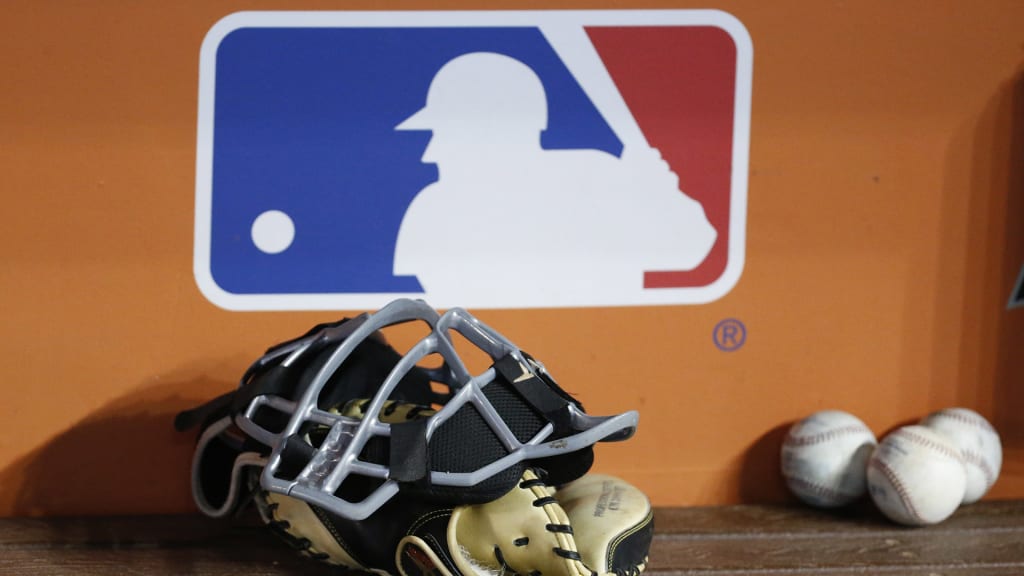
The 2020 season is anticipated to begin on July 23-24, with teams set to play a proposed 60-game schedule after the coronavirus pandemic put Opening Day on hold.
Sixty games -- which equates to 37 percent of a typical 162-game schedule, should make for some intense drama. Every year, some clubs start hot and fade. Others start slow before catching fire. The longer the season, the more time there is for every team to find its level. An abbreviated campaign, on the other hand, narrows the sample size and widens the array of possibilities.
To get a sense of how different the results could be, here is a year-by-year look -- going back to the start of the Wild Card Game era in 2012 -- at an alternate universe in which the regular season ended at 60 games. For each year, we’ve noted which clubs would have reached the postseason in this new reality, and which clubs that actually reached it would now be left out.
(Two major caveats: This is looking at seasons that began as scheduled and ended after 60 games, which is not quite the same as our current situation. And teams no doubt would have behaved and performed differently had they known of the 60-game schedule in advance. Nonetheless, this provides a rough idea of the impact.)
^Indicates team that did not make playoffs during the actual season in question
#Indicates team that would make the postseason only by winning a tiebreaker game
2019
AL playoff teams: Yankees (East), Twins (Central), Astros (West), Rays, Rangers^
NL playoff teams: Braves/Phillies^ (East), Brewers/Cubs^ (Central), Dodgers (West)
Left out: A’s, Cardinals, Nationals
The 2019 World Series champions would not have reached the postseason in a 60-game schedule. While Washington was beginning its climb from rock bottom, its 27-33 record at that point still would have left it 13th out of 15 NL clubs and six games out. Meanwhile, the NL would have needed tiebreaker games in two of its three divisions -- just like it did in 2018, when the NL Central and NL West featured Game 163 battles.
Imagine how much differently we would view the Phillies’ season if it had ended after 60 games. It just so happens that it was in their 60th game that Andrew McCutchen was lost for the season with a torn ACL in his left knee. That certainly was not the only factor, but after being tied with the Braves through that point, Philadelphia finished 16 games out.
2018
AL playoff teams: Red Sox/Yankees (East), Indians (Central), Mariners^ (West), Astros
NL playoff teams: Braves/Nationals^ (East), Brewers (Central), D-backs^ (West), Cubs
Left out: A’s, Dodgers, Rockies
Remember when the 2018 Dodgers looked lost? The team dropped as far as 10 games below .500 in mid-May (16-26) and was still just 30-30 after 60 games. That would have left Los Angeles tied for third in the NL West, two games behind Arizona. Of course, the club finished 62-41, beating the Rockies in the NL West tiebreaker game to claim the sixth of their seven straight division titles.
And for the second time in these past eight seasons (see below), a 60-game schedule could have allowed the Mariners to snap a postseason drought that stretches back to 2002. In this case, Seattle would have won the AL West at 38-22, one game ahead of Houston, which in real life went on to finish 14 games better than 89-win Seattle.
2017
AL playoff teams: Yankees (East), Twins (Central), Astros (West), Red Sox, Indians/Orioles^
NL playoff teams: Nationals (East), Brewers^ (Central), Rockies (West), Dodgers, D-backs
Left out: Cubs, Indians#
While the postseason field might not have changed much, only two of the six division winners would have been the same (Houston and Washington). Meanwhile, Dodgers and Twins teams that easily took their divisions with 104 and 102 wins, respectively, would have been relegated to Wild Card status.
Not only would Cleveland not have won the AL Central, it might have been left out of the postseason entirely. Terry Francona’s club would have needed to beat Baltimore in a tiebreaker just to get to the AL Wild Card Game against Boston.
2016
AL playoff teams: Orioles (East), Indians (Central), Rangers (West), Red Sox, Mariners^
NL playoff teams: Nationals (East), Cubs (Central), Giants (West), Mets, Cardinals^/Pirates^/Dodgers
Left out: Blue Jays, Dodgers#
Here are those Mariners in the postseason again. In 2016, Seattle’s 33-27 start would have netted the club the AL’s second Wild Card berth, but over 162 games, its 86 wins left it three behind Baltimore and Toronto. And speaking of those two teams, their memorable 11-inning battle in the AL Wild Card Game -- in which Zack Britton infamously did not appear -- wouldn’t happen here, with Baltimore edging Boston by one game for the AL East title.
Not for the first or last time on this list, a 60-game season could have turned a Dodgers NL West crown into no postseason berth at all. In this case, Los Angeles would have needed to fight its way out of a three-way tiebreaker for the second NL Wild Card spot with St. Louis and Pittsburgh (which in reality fell to a 78-83 finish).
2015
AL playoff teams: Yankees (East), Royals (Central), Astros (West), Twins^, Rays^
NL playoff teams: Nationals^/Mets (East), Cardinals (Central), Dodgers (West), Giants^, Pirates/Cubs
Left out: Blue Jays, Rangers, Mets#, Pirates#, Cubs#
Remember José Bautista’s epic home run and bat flip in the 2015 AL Division Series? He never would have gotten that chance here. Toronto was only at .500 after 60 games, but it went 63-39 from there to win the AL East. Texas, which was on the other side of Bautista’s big moment, also would have fallen short of the postseason.
In the NL, the Nationals would have avoided the late-season collapse and discord that cost manager Matt Williams his job, instead playing a tiebreaker against the Mets. Because those teams were only knotted for the NL’s sixth-best record after 60 games, the loser would have been excluded from the postseason. Meanwhile, the Pirates and Cubs -- who in reality faced off in the NL Wild Card Game -- also would have needed a tiebreaker to decide the final berth.
2014
AL playoff teams: Blue Jays^ (East), Tigers (Central), A’s (West), Angels, Mariners^/Yankees^/Orioles
NL playoff teams: Braves^/Marlins^ (East), Brewers^ (Central), Giants (West), Nationals/Cardinals/Dodgers
Left out: Orioles#, Royals, Nationals#, Cardinals#, Dodgers#, Pirates
The 2014 postseason race would have been a delightful mess after 60 games. Both leagues would have had a three-way tie for the second Wild Card spot, both which would have necessitated multiple tiebreaker games. In the NL, those three teams turned out to be the division champions over 162 games, each winning at least 90 games.
There also would have been a tiebreaker to decide the NL East, with the loser taking the first NL Wild Card spot. In reality, the Nationals ran away with their first division title by 17 games. But at the 60-game mark, they were one behind the Braves and Marlins (32-28), who both went on to finish below .500. For Miami, this would have been its first postseason berth since 2003.
2013
AL playoff teams: Red Sox (East), Tigers (Central), Rangers^ (West), A’s, Yankees^
NL playoff teams: Braves (East), Cardinals (Central), D-backs^ (West), Reds, Pirates
Left out: Rays, Indians, Dodgers
In 2013, the Yankees failed to reach the postseason for only the second time in 19 seasons, and their .525 winning percentage was their lowest since 1992. But with a 35-25 start, they would have edged the Orioles by one game for an AL Wild Card spot.
By the end of 2013, the Dodgers won the NL West by 11 games over the D-backs. But things didn’t click until late June, a few weeks after the arrival of phenomenal rookie Yasiel Puig. Los Angeles, which trailed in the division race by as much as 9 1/2 games, used a 53-13 blitz to leave its slow start in the dust.
2012
AL playoff teams: Rays^/Yankees (East), White Sox^ (Central), Rangers (West), Orioles
NL playoff teams: Nationals (East), Reds (Central), Dodgers^ (West), Braves, Giants
Left out: Tigers, A’s, Cardinals
The inaugural Wild Card Games pitted the Orioles against the Rangers and the Cardinals against the Braves, but the matchups here would have looked different. St. Louis, which eventually advanced to Game 7 of the NL Championship Series, wouldn’t have made the postseason at all, having started 31-29.
The AL-champion Tigers also would have missed the postseason in this scenario. Detroit started 28-32 -- five games worse than the White Sox -- but closed on a 60-42 run to win the AL Central by three games.
The NL West would have looked much different as well. The Dodgers’ string of division titles didn’t begin until the next year, but in 2012, they had MLB’s best record after 60 games (38-22). A 6-19 stretch from mid-June to mid-July ruined that, and they finished eight games behind the eventual World Series-champion Giants.
